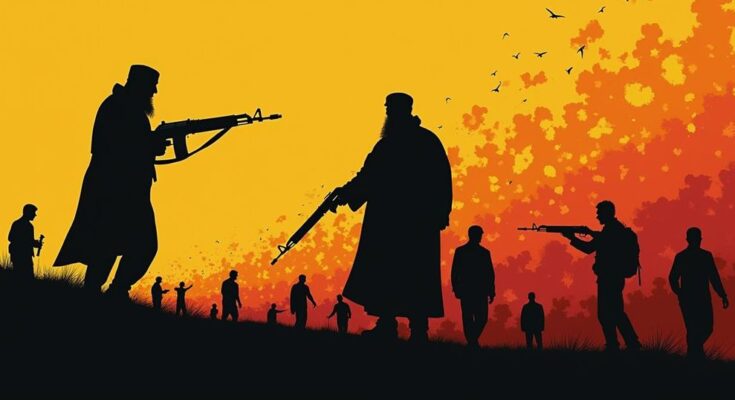Hassan Nasrallah, the leader of Hezbollah, was killed in an Israeli airstrike in Beirut, amplifying fears of an escalating conflict amid ongoing hostilities with Israel. Known for his transformative leadership, Nasrallah was pivotal in shaping Hezbollah’s military and political strategy over the decades, aligning it closely with Iranian interests while maintaining a significant following. His death signifies a crucial moment in the regional power balance.
Hassan Nasrallah, the long-serving secretary-general of Lebanon’s Hezbollah, was killed at the age of 64 in an Israeli airstrike on the southern suburb of Beirut known as Haret Hreik. Hezbollah confirmed the news of his death, stating that he had fallen as a martyr on the path to Jerusalem. His death signifies a significant escalation in the ongoing conflict between Israel and Hezbollah, which has intensified in the context of the wider hostilities following the recent Gaza conflict. Nasrallah led Hezbollah through various critical military engagements, including the notable 2006 war against Israel. He was pivotal in transforming Hezbollah into a formidable paramilitary and political entity in the Middle East, aligning closely with Iran and various Palestinian groups. In recent months, as tensions escalated due to the conflict in Gaza, Hezbollah had escalated its military response, launching rocket attacks against Israel. The current hostilities had already resulted in substantial casualties, and Nasrallah’s promise of retaliation against Israeli strikes on Lebanon intensified fears of a broader regional conflict. A figure revered among Shiite Muslims, Nasrallah’s leadership style combined charismatic oratory with strategic military acumen. He was born in 1960 in a poor family in Beirut, eventually rising through Hezbollah ranks after its founding in 1982. Much of his life was spent in hiding to evade Israeli assassination attempts, communicating with his followers primarily through satellite broadcasts. Over decades of leadership, Nasrallah became an iconic figure in the Arab world. His portrayal, coupled with Hezbollah’s socio-political initiatives, made him a critical player in Lebanese and regional politics. Despite various setbacks facing Hezbollah, including allegations of terrorism and internal strife, he maintained a significant following and influence both in Lebanon and the greater Middle East.
Hassan Nasrallah rose to prominence in the context of Lebanon’s turbulent political landscape, particularly following Israel’s invasion in 1982, which led to the establishment of Hezbollah as a resistance movement. Under his leadership, Hezbollah transitioned from an insurgent group to a powerful political force, securing representation in the Lebanese parliament and influencing regional dynamics, especially through its alliances with Iran and Syria. His tenure witnessed multiple conflicts, notably the 2006 war against Israel, which defined his reputation as a military strategist, and his involvement in the Syrian civil war, which strained Hezbollah’s popularity in the Arab world. As tensions mounted in the region, particularly following hampered relations due to the Gaza conflict, Nasrallah’s death represented a pivotal moment, intensifying the complexities within Israeli-Lebanese relations and the broader Middle East.
The assassination of Hassan Nasrallah marks a significant turning point in the ongoing conflict between Hezbollah and Israel, raising tensions in an already volatile region. His death, while commemorated by his followers as a martyrdom, raises critical questions about the future of Hezbollah and its military and political strategies in the wake of potential Israeli retaliation and further escalation. Nasrallah’s legacy will be remembered for altering the landscape of resistance against Israel but also highlights the intricate dynamics of Middle Eastern politics, where his absence could inspire both strife and change.
Original Source: apnews.com




